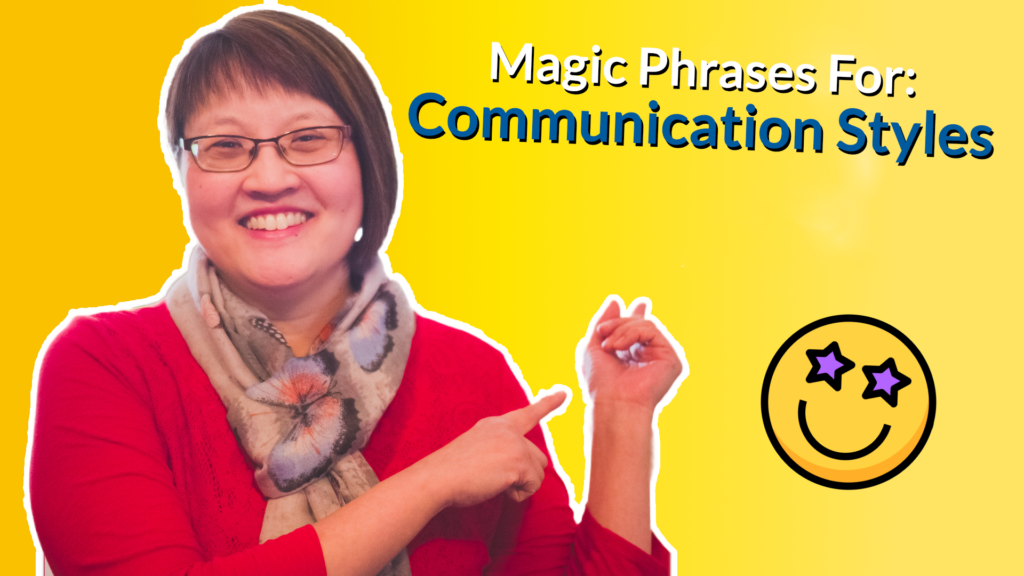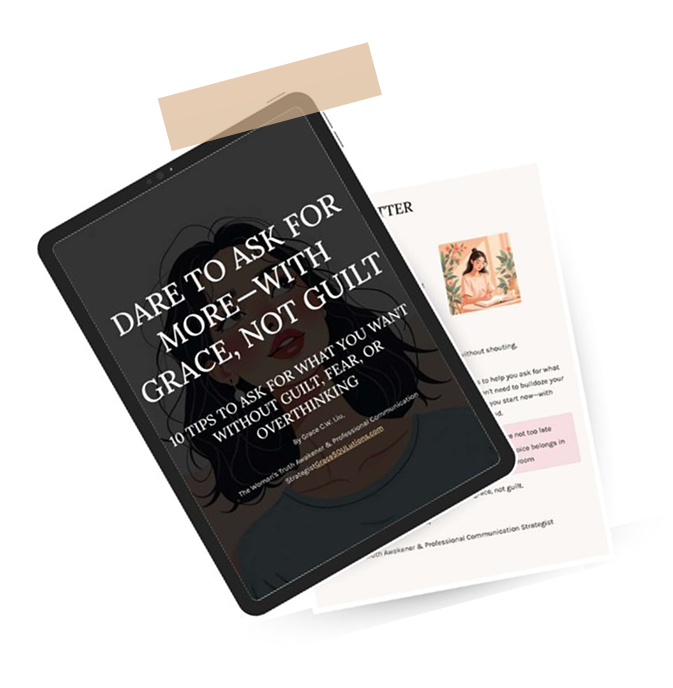When playing a game or sport, misunderstandings can happen at any time.
Any player can misunderstand the given instructions for playing the game or misunderstand an action to take during game play.
If misunderstandings can occur while playing a game or sport, then they certainly can also occur during a conversation or in communication!
Afterall, communication can feel like you’re playing a game.
Let’s talk about misunderstandings or: when there is a breakdown in understanding during a conversation.
For people who are sensitive, introverted, and conflict-phobic, misunderstandings can make you feel uncomfortable, making you feel as if it was your fault, or that what you said didn’t really matter to the person who you were speaking with.
The main thing that most sensitive, introverted, and conflict-phobic people would like to avoid is conflict or argument in their communication that could lead to creating disharmony in relationships.
The truth is, yes, misunderstandings can sometimes lead to conflict or even big arguments.
Let’s explore why misunderstandings occur.
There can be few reasons…
One of them is the delivery of the message.
Misunderstandings can easily occur if you delivered your message while the person was distracted or if there was a lot of background noise.
The person may have only received half or less of what you said depending upon how much the person heard due to distractions or the attention paid to what you said in the first place.

Another reason for misunderstanding might be due to dialect or foreign-born accent.
People who are not familiar with different dialects or hearing people speak with foreign accents might have a hard time understanding a person who speaks with a heavy dialect or accent.
This is my own personal example that I’m sharing. Growing up I became accustomed to hearing my parents and their friends speak with heavy Chinese accents because English is their second language.
My friends were not accustomed to hearing accents and had a hard time understanding my parents when they spoke English.
I remember this one time when my mom told my friend to ‘take the card’ (birthday card), except it sounded like ‘take the car’.
My friend was confused because she was 10 years old at the time and wasn’t old enough to have a license to drive a car so she said, ‘I can’t take your car.’
My mom insisted she take the card and my friend declined to take the car.
I was busy wrapping up the treats in the kitchen at the time and I could hear bits and pieces of the conversation that was going on in the living room.
I explained to my friend that my mom was telling her to take the card and not the car.
We had a good laugh at that misunderstanding because mom couldn’t understand why my friend didn’t want her birthday card and my friend couldn’t figure out why my mom wanted her to break the driving law.
Another reason for misunderstandings might be due to making assumptions.
Have you ever made assumptions about something that you heard and later found out that your assumptions were wrong?
Rather than making assumptions it’s a good rule of thumb to ask for clarification.
Don’t assume because you end up risking being wrong and creating misunderstandings.
If you aren’t careful, some assumptions can lead to disastrous misunderstandings and results.
This is why nurses call physicians or pharmacists when they’re not sure about a patient’s medications, ask for clarification, and then repeat it back. It’s to make sure that there is no misunderstanding with the patient’s medication in order to avoid severe consequences.
There are ways to help prevent misunderstandings or reduce the breakdown in your personal communication so that you can have happy and harmonious relationships when you communicate.
Just do the following:
Deliver your message in a quiet environment if possible and make sure you have the person’s attention when you deliver your message.
Be patient when listening to a foreign-born speaker with a heavy accent or someone with a heavy dialect. Slow down your rate of speech and kindly ask the person with the heavy accent to slow down rate of speech as well.
Don’t make assumptions. If you’re not sure, ask for clarification.

Misunderstandings may still occur, but at least you know some ways to maneuver around it if it happened.
It’s about doing your best to reduce the misunderstandings from occurring in your communication using the tools that you have been given.
Sometimes one of the best things you can do if misunderstanding did occur is to laugh it off when appropriate, or let it go. Avoid overthinking about it or being overly serious.
The Objective of the Game
The ‘winning’ objective is that you’re aware that misunderstandings can happen.
There are times that you might be able to avoid misunderstandings or gracefully maneuver around them.
If you managed to avoid or maneuver around misunderstandings so that you were able to continue to have constructive communication…That’s a win!
If you couldn’t avoid misunderstandings or repair a communication breakdown that occurred due to misunderstandings, that’s okay. Guess what?
You learned without losing.
Remember there is no losing in this game, only learning.
Learning points in this example might be:
-What can you do differently next time to avoid misunderstanding?
–Why do you think the misunderstanding occurred in the first place?
–What can you do better next time?
You earn bonus points when you’re bold and step into the authenticity of the character you want to portray and hold yourself accountable to when misunderstanding occurs.
This is the Communication Warrior.
You know your way to repair misunderstandings… Now Go Play and Have Fun Communicating!
If you’re an introverted, sensitive, conflict-phobic person who would love to become and feel like a communication warrior then click below to book your free Communication Breakthrough Session where we will discover 5 obstacles that is stopping your from becoming a communication warrior.
Warm regards,
Grace CW Liu
Communication Coach & Navigator
W: GraceSOULutions.com





